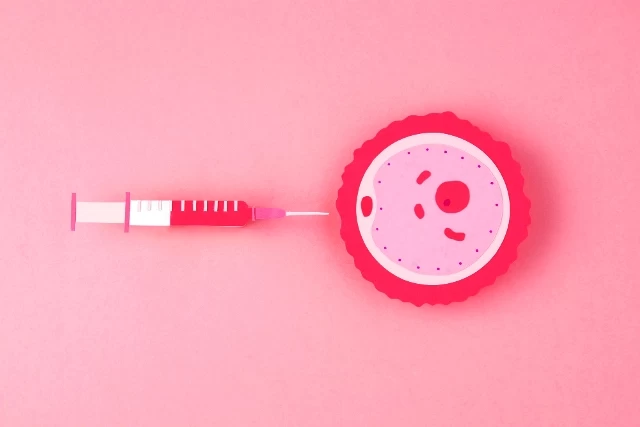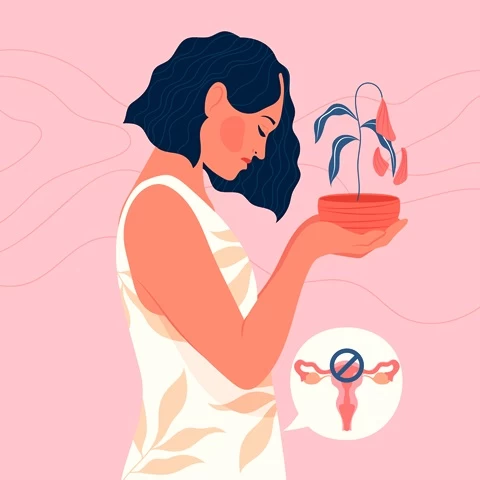
Vaginismus and Intrauterine Insemination
- Vaginismus and Intrauterine Insemination
- Vaginismus and Intrauterine Insemination (IUI)
- How is IUI Performed?
- Who is IUI Suitable For?
- Disadvantages of IUI in Vaginismus Cases
- Considering Vaginismus Treatments Instead of IUI and IVF Procedures
Vaginismus and Intrauterine Insemination (IUI)
Vaginismus patients may seek intrauterine insemination (IUI) treatments with the desire to have a child due to the long-term and sometimes years-long sexual problems they experience. However, in addition to overcoming vaginismus through sexual therapy, they may also consider IUI, ovulation induction, in vitro fertilization (IVF), and intracytoplasmic sperm injection (ICSI) as fertility treatments. This section elaborates on vaginismus and IUI in detail, providing patients with information about various treatment options.
How is IUI Performed?
During the menstrual cycle, usually between the 2nd and 5th day, the ovaries can be stimulated with specific drug treatments to induce egg production. "Follicles," which are structures containing eggs, are identified and triggered to rupture with an injection administered through the abdomen or buttocks. This process leads to ovulation occurring approximately 36 hours later.
During ovulation, semen obtained from the male partner through masturbation is subjected to a special procedure in a laboratory to obtain healthy sperm cells. This solution, containing healthy sperm, is then injected into the woman's uterus through a catheter. The procedure typically takes about 5-10 minutes.
Who is IUI Suitable For?
IUI treatments are mostly used in cases of male infertility due to sperm problems, female infertility due to ovulation issues, endometriosis, and unexplained infertility.
IUI is not recommended for vaginismus patients. Vaginismus is related to sexual issues and is not a direct cause of infertility. Therefore, IUI is not suitable for treating vaginismus.

Disadvantages of IUI in Vaginismus Cases
The disadvantages of IUI in vaginismus cases are as follows:
- Lower success rate compared to vaginismus treatment: The success rate of IUI treatments generally ranges from 8% to 18%, which means there is up to a 90% chance of failure. On the other hand, vaginismus treatment can achieve a success rate of around 100% with correct and scientific methods.
- Side effects of hormone drugs: Hormone medications used during IUI and IVF treatments have significant disadvantages in terms of their potential side effects. The hormone drugs administered to patients may cause various adverse effects. Additionally, as the number of IVF attempts increases, the risk of early menopause may also rise.
- Challenges with gynecological examinations and ultrasound: Vaginismus patients may face difficulties during gynecological examinations and ultrasound procedures throughout the IUI treatment process. Patients often need to undergo 3-4 transvaginal ultrasounds to monitor the ovaries. Those who have not received vaginismus treatment or are still experiencing vaginismus may encounter problems during gynecological examinations, transvaginal ultrasounds, and the IUI procedure. Particularly during IUI, the insertion of a speculum into the vagina requires general anesthesia. Patients who have not undergone vaginismus treatment and continue to experience vaginismus may struggle with transvaginal ultrasounds, making abdominal ultrasounds a more suitable approach. However, abdominal ultrasounds may have lower image clarity compared to transvaginal ultrasounds. Ultrasound monitoring of ovulation through transvaginal and under general anesthesia carries anesthesia risks.
- Higher risks in IUI pregnancies: IUI pregnancies are associated with increased risks of miscarriage, ectopic pregnancies, and twin or triplet pregnancies compared to natural pregnancies.
- Sexual intercourse may not return to normal even after pregnancy: Even if pregnancy is achieved through IUI and the person gives birth, the problem of inability to engage in sexual intercourse may persist. However, after vaginismus treatment, the chance of pregnancy increases, and a normal sexual life can be restored. Cognitive-behavioral sexual therapies used in vaginismus treatment can lead to a quick and permanent resolution of the problem.
- Mode of delivery in IUI pregnancies: Vaginismus patients who conceive through IUI are more likely to opt for cesarean section due to their fear of childbirth. The fear of childbirth among vaginismus patients may reduce the likelihood of opting for a natural birth, making cesarean section more preferable. However, cesarean section births carry both surgical and anesthesia risks. After successful treatment of vaginismus, patients can have the possibility of a natural birth experience.
- Vaginismus may persist after IUI pregnancies: Even if vaginismus patients achieve pregnancy through IUI and give birth via cesarean section, they may continue to experience sexual problems. These sexual issues can adversely affect the marital relationship over time. Since sexuality is a crucial aspect of a healthy marriage, unresolved sexual problems may lead to serious issues such as infidelity or divorce being repeated.
Considering Vaginismus Treatments Instead of IUI and IVF Procedures
Vaginismus is a sexual problem that can be permanently resolved with modern, ethical, and scientific vaginismus treatments. The first and most important step for vaginismus treatment is to find a suitable center through thorough research. Following this, it is crucial not to postpone the solution and start the treatment as soon as possible. Delaying the resolution of the problem may cause vaginismus to manifest in different ways and make it more challenging to overcome. Therefore, an early and effective approach to vaginismus is highly important.
Vaginismus can be successfully resolved with sexual therapies. After overcoming these sexual issues, vaginismus patients can undergo examinations with ease, overcome their fear of childbirth, and have the chance to give birth naturally. Positive results obtained through sexual therapies can be a significant turning point in the lives of vaginismus patients, providing them with self-confidence and comfort. As a result, vaginismus can be effectively treated, leading to an improvement in patients' quality of life.
Fertility treatments such as IUI, ovulation induction, IVF, and ICSI offer significant advantages to those experiencing infertility. However, these treatments are not recommended for individuals with vaginismus. The primary focus should be on sexual therapy to resolve vaginismus. With the help of sexual therapy, vaginismus patients can have the possibility of conceiving naturally and having children."






